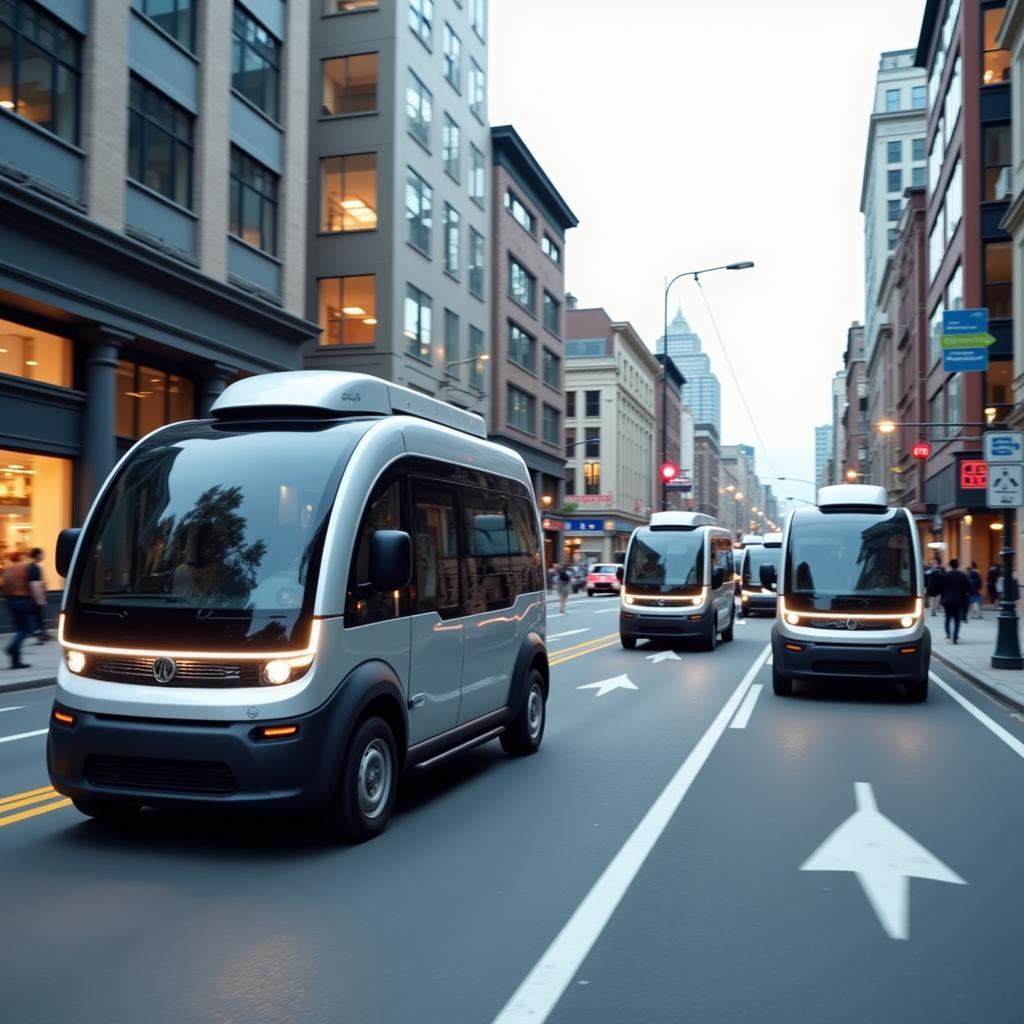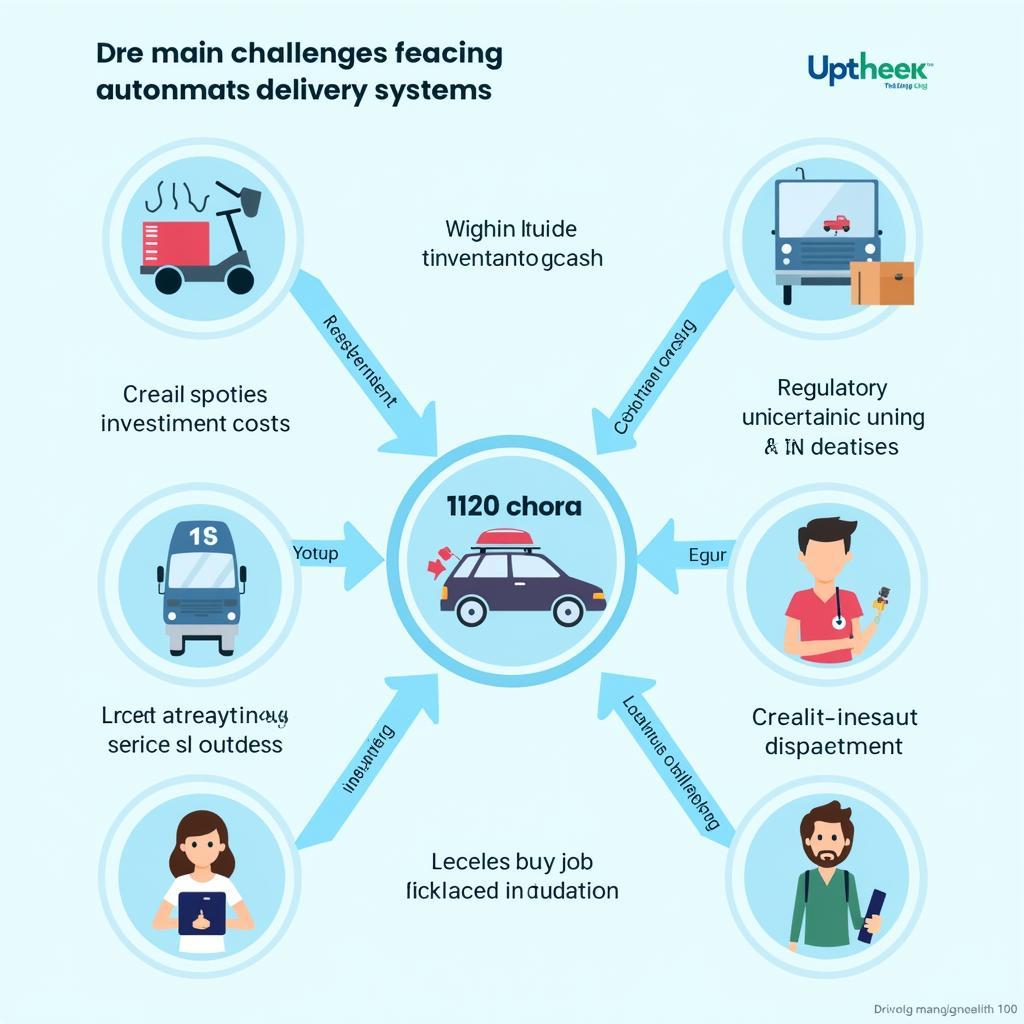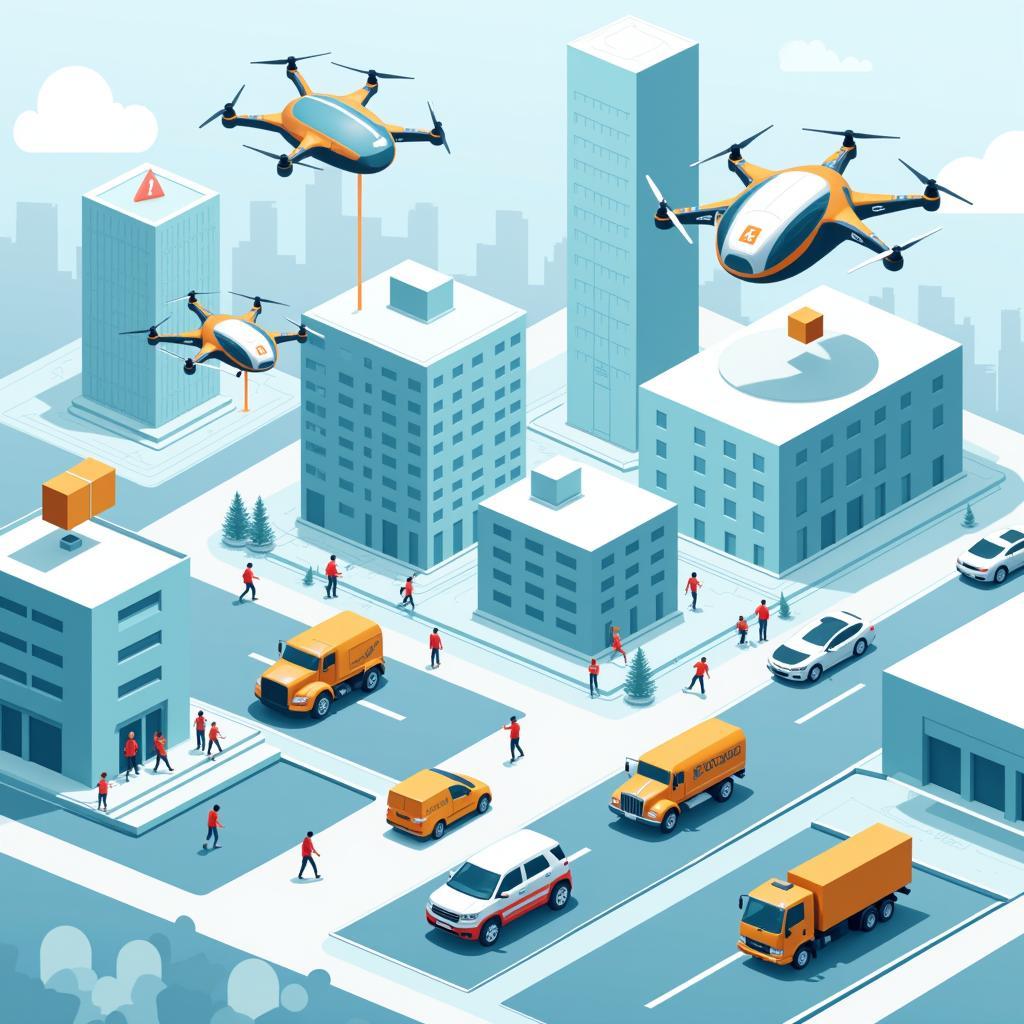How Will Courier Services Be Affected by Self-Driving Cars?
Self-driving cars are poised to revolutionize many industries, and courier services are no exception. The advent of autonomous vehicles promises significant changes, offering both opportunities and challenges for businesses that rely on delivering goods. This article explores the multifaceted impact of self-driving cars on the courier industry, examining the potential benefits, hurdles, and the evolving landscape of last-mile delivery.
The Autonomous Revolution: Reshaping Courier Services
The integration of self-driving cars into courier services will fundamentally alter how goods are transported. From reduced labor costs to increased efficiency, the potential benefits are numerous. However, companies will need to adapt and strategize to fully leverage these advancements while mitigating potential downsides.
Benefits of Self-Driving Cars for Couriers
- Reduced Labor Costs: One of the most significant advantages is the elimination of driver salaries and benefits, a major expense for courier companies. This cost reduction can translate to lower prices for consumers and increased profit margins for businesses.
- 24/7 Availability: Self-driving cars don’t require breaks or sleep, enabling continuous operation and faster delivery times, particularly for time-sensitive goods. Imagine receiving a package at 3 a.m. because an autonomous vehicle could make the delivery!
- Improved Safety: Autonomous vehicles are programmed to adhere to traffic laws and avoid risky maneuvers, potentially leading to fewer accidents and increased safety on the roads. This not only protects the goods being transported but also contributes to overall road safety.
- Increased Efficiency: Optimized routes and predictable delivery times can significantly improve efficiency, streamlining logistics and minimizing delays. Real-time tracking and route adjustments based on traffic conditions will further enhance efficiency.
- Environmental Impact: Depending on the power source, autonomous vehicles can contribute to a greener delivery system, particularly if powered by electricity or other renewable energy sources. This aligns with the growing demand for sustainable business practices.
 Self-Driving Delivery Vans on City Streets
Self-Driving Delivery Vans on City Streets
Challenges for Courier Services in the Age of Autonomy
While the advantages are compelling, the transition to self-driving cars also presents challenges:
- High Initial Investment: The cost of acquiring and maintaining a fleet of autonomous vehicles is substantial, representing a significant barrier to entry for smaller courier companies.
- Technological Hurdles: While self-driving technology is rapidly advancing, it still faces hurdles related to navigating complex environments, inclement weather, and unexpected situations.
- Regulatory Uncertainty: The legal framework surrounding autonomous vehicles is still evolving, creating uncertainty for businesses investing in this technology. Liability in case of accidents and data privacy are key areas of concern.
- Job Displacement: The widespread adoption of self-driving cars could lead to job displacement for human drivers, raising social and economic concerns. Retraining and alternative employment opportunities will be crucial.
- Security Risks: Autonomous vehicles are susceptible to hacking and cyberattacks, potentially compromising the security of the goods being transported and the delivery system itself.
 Challenges of Autonomous Delivery Systems
Challenges of Autonomous Delivery Systems
How Will Courier Services Adapt?
Courier services will need to adapt their business models to thrive in the age of autonomy. This involves:
- Investing in Technology: Companies will need to invest in the necessary infrastructure and technology to support autonomous vehicles, including charging stations, maintenance facilities, and software integration.
- Developing New Skill Sets: Employees will require training in areas such as remote monitoring, data analysis, and cybersecurity to manage and maintain autonomous fleets.
- Partnering with Tech Companies: Collaborations with technology companies specializing in autonomous vehicle development and software will be essential for successful integration.
- Focusing on Last-Mile Delivery: Autonomous vehicles are particularly well-suited for last-mile delivery, the final stage of the delivery process. Courier companies can leverage this advantage to optimize their operations.
- Exploring Hybrid Models: A hybrid approach combining human drivers and autonomous vehicles may be the most effective solution in the near term, allowing for a gradual transition.
“The future of courier services is inextricably linked to the development of self-driving technology,” says Dr. Amelia Carter, a leading expert in logistics and supply chain management. “Companies that embrace this change and adapt their strategies accordingly will be best positioned for success.”
 The Future of Courier Services with Autonomous Vehicles
The Future of Courier Services with Autonomous Vehicles
Conclusion
Self-driving cars are set to transform the courier industry, presenting both opportunities and challenges. While the benefits of reduced costs, increased efficiency, and 24/7 availability are significant, companies will need to address the challenges of high initial investment, technological hurdles, and regulatory uncertainty. By adapting their strategies, investing in technology, and developing new skill sets, courier services can successfully navigate this transformative period and capitalize on the potential of autonomous vehicles to revolutionize the delivery landscape.
FAQs
- When will self-driving cars become commonplace in courier services?
- How will autonomous vehicles impact delivery times and costs?
- What are the main safety concerns surrounding self-driving delivery vehicles?
- Will self-driving cars completely replace human courier drivers?
- How are governments regulating the use of autonomous vehicles for deliveries?
- What are the cybersecurity risks associated with self-driving delivery systems?
- How can courier companies prepare for the transition to autonomous vehicles?
If you need further assistance, please contact us via WhatsApp: +1(641)206-8880, or Email: [email protected]. Our customer support team is available 24/7.
